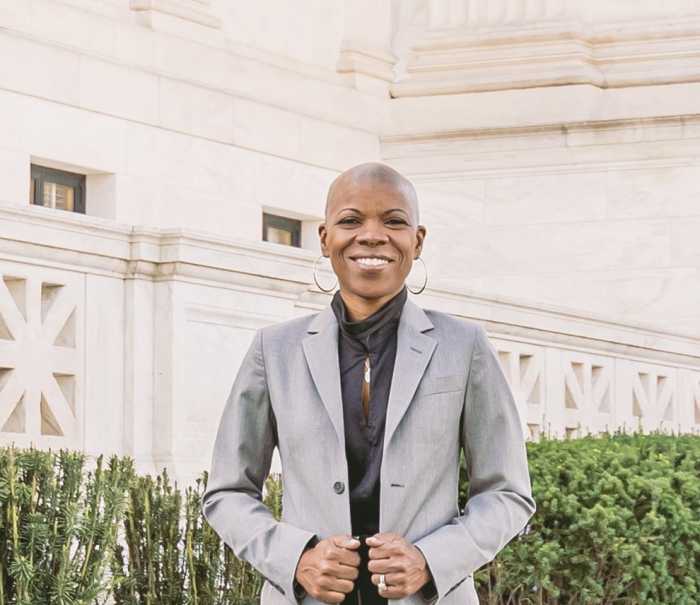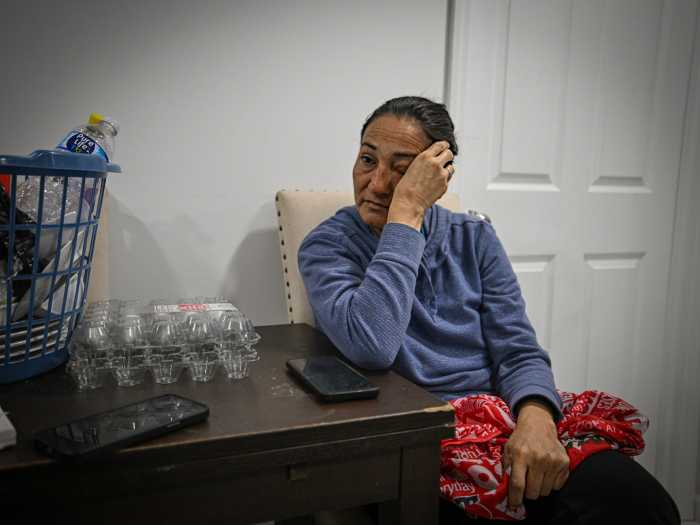Judge finds refusal to provide domestic benefits violated state anti-bias law
In a ruling that could potentially extend a right of same-sex domestic partnership benefits to all state and local government employees in New Hampshire, a trial judge ruled on May 3 that denial of such benefits violates the state’s law banning sexual orientation discrimination.
The ruling, reversing a decision by the New Hampshire Commission for Human Rights, which has primary authority to enforce the non-discrimination law, came in a case brought by Gay and Lesbian Advocates and Defenders on behalf of two lesbians who work for the state Community Technical College System. The state attorney general’s office indicated that the opinion will be appealed.
Patricia Bedford and Anne Breen are both long-term employees of the Technical College System who have responsible supervisory positions. Both women are living in long-term committed relationships with lesbian partners in which they are raising children.
Bedford and Breen both sought to have their partners receive health and dental insurance coverage, and to be assured that they could use paid bereavement leave should their partner die. In addition, Breen was interested in getting insurance coverage for her child. When the college refused their application for benefits, they filed a complaint with the Human Rights Commission, which turned them down. According to the Commission, although the state’s human rights law forbids sexual orientation discrimination in compensation and benefits, the Commission did not consider the denial of partner benefits to be such discrimination since unmarried opposite-sex couples are also disqualified. The Commission also claimed that it lacked the authority to override state public employee benefits laws that define eligibility in terms of traditional married couples.
Such arguments have carried the day for government defendants many times in other states, in cases dating from the 1980s and 1990s, but have been less well received more recently. Most significantly, the highest courts in Alaska and New York have issued opinions in the past few years that reject the simplistic argument that same-sex couples are not being discriminated against because unmarried opposite-sex couples are also denied benefits.
In a 2005 ruling, the Alaska Supreme Court said refusal of benefits to same-sex partners of employees violated the equal protection clause of the state Constitution. And in Levin v. Yeshiva University, a 2001 decision, New York’s highest court ruled that the university might have violated state and local discrimination laws when it refused to allow lesbian medical students to live in university housing with their same-sex partners on the same bases that married students are provided such access.
Merrimack County Superior Court Presiding Justice Kathleen A. McGuire found both of these cases to more persuasive than the older rulings.
“The Court agrees with the analyses of the cases cited by the petitioners as to the appropriate groups for comparisons,” she wrote. “The Commission determined that the petitioners were similarly situated to unmarried, heterosexual employees and therefore had not been discriminated against based on their sexual orientation because unmarried, heterosexual employees also cannot receive benefits for their domestic partners. However, New Hampshire law prohibits marriage between persons of the same sex.”
“Thus,” she explained, “same-sex partners have no ability to ever qualify for the same employment benefits unmarried heterosexual couples may avail themselves of by deciding to legally commit to each other through marriage. For this reason, unmarried heterosexual employees are not similarly situated to unmarried, gay and lesbian employees for purposes of receiving employee benefits.”
The court also rejected the argument that the Commission could not “override the administrative rules” and New Hampshire law concerning eligibility for public employee benefits, noting that lists of categories of “immediate family” who may qualify are prefaced by the word “including.”
“The term ‘including’ indicates that the factors listed are not exhaustive,” McGuire wrote. Then noting 1997 changes to the human rights law barring sexual orientation discrimination in employment and its terms and conditions, she continued, “It is apparent that use of the term ‘including’ within the language of [the employee benefits law] allows for the extension of benefits to more than an employee’s spouse and minor children.”
McGuire found that the state’s efforts to justify the refusal of benefits are “insufficient to establish a legitimate nondiscriminatory purpose for the policy.”
McGuire expressed the view that that Bedford and Breen would qualify under any reasonable administrative regulations the state adopts to qualify gay and lesbian couples for partner benefits. The federal Employee Retirement Income Security Act, however, pre-empts states and localities from passing laws affecting employee benefit programs of non-governmental employers.
McGuire pointed out that the employees of the state university already receive such benefits under a collective bargaining agreement negotiated in 2000, but that it did not extend to the community college system in which Bedford and Breen are employed.
Democratic Governor John Lynch welcomed the ruling, but said he understood the effort by Republican state Attorney General Kelly Ayotte, whom he appointed to office, in appealing the decision, to have the New Hampshire Supreme Court given a final say on the matter.
gaycitynews.com





































